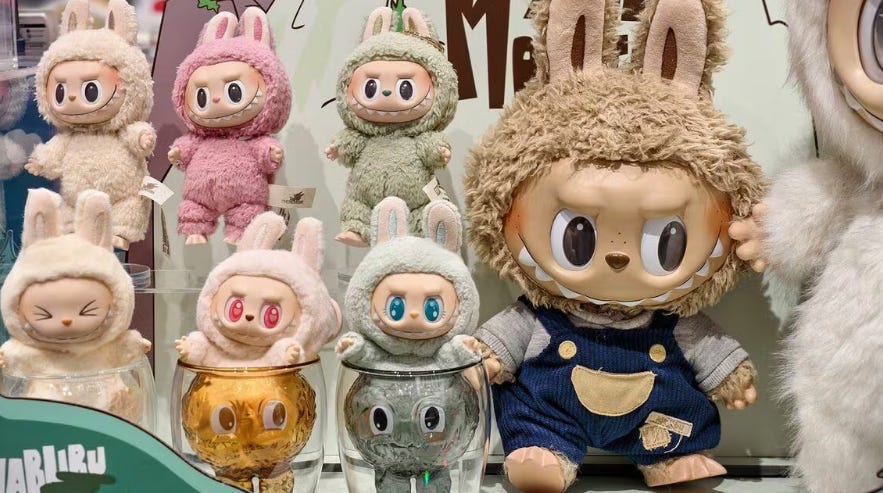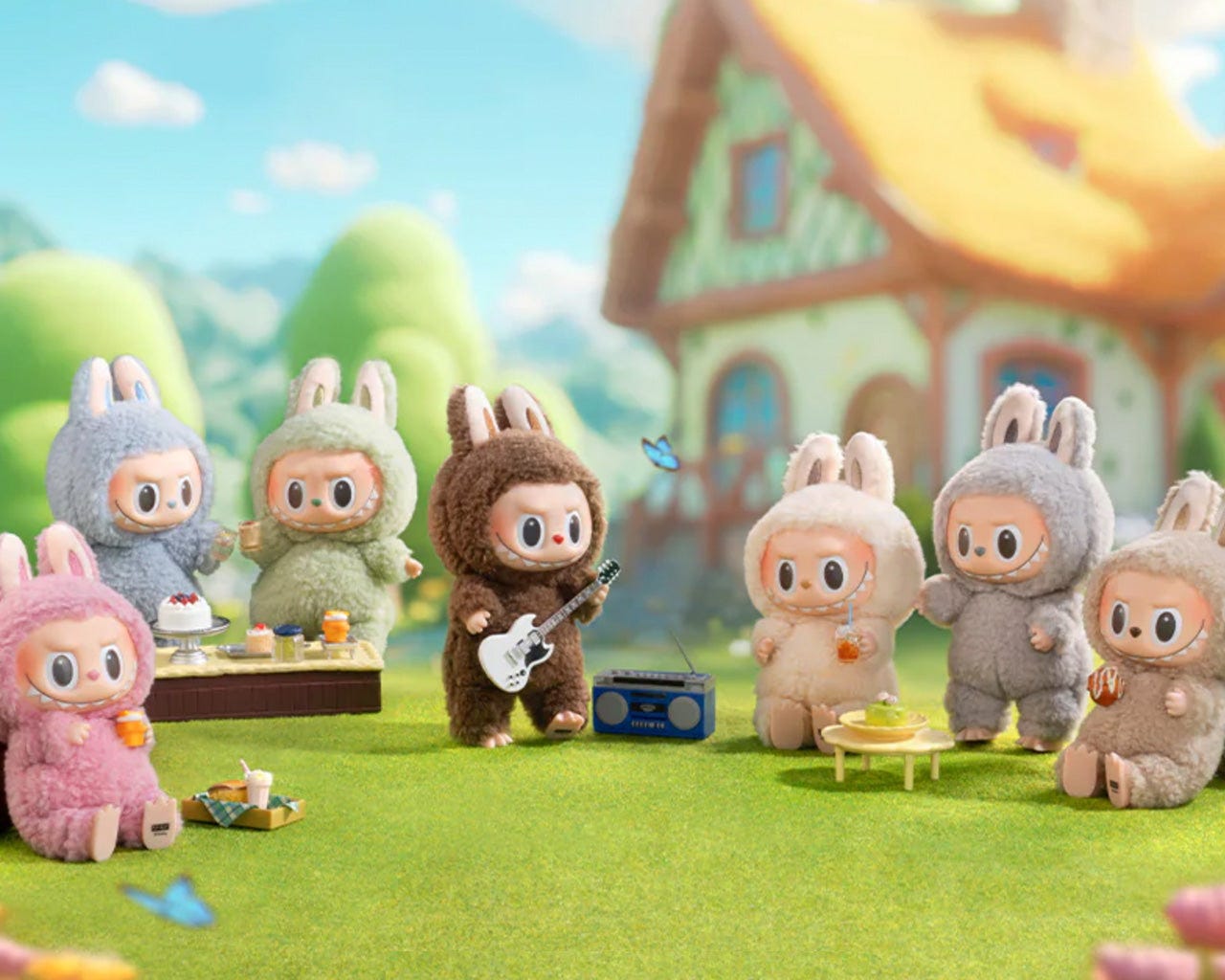Labubu’s Crash Reveals Why Hello Kitty Still Reigns Supreme in Japan’s Character Market
Japanese pop culture news edited by Patrick Macias
Labubu, a designer toy from China, gained global hype thanks to celebrity endorsements and was predicted to overtake Hello Kitty by 2027
POP MART, the company behind Labubu, flooded the market and triggered a resale price crash, devastating scalpers
Japan is only now catching the trend, but China's reversal shows why Labubu may never achieve lasting global power
Labubu, the rabbit-eared, fang-faced toy from China, has quickly gone from obscure art figure to global sensation. With celebrity endorsements from BLACKPINK’s Lisa and David Beckham, the designer character exploded in popularity and earned serious commercial momentum through its parent company, POP MART. Some market reports even predicted Labubu would surpass Hello Kitty in worldwide recognition by 2027. But what fans in Japan may not realize is that the bubble has already burst in China. Just two weeks ago, POP MART itself triggered a resale market collapse that left scalpers with massive losses and the future of the brand uncertain.
Japan Joins the Craze
During a June visit to POP MART’s Ikebukuro PARCO store in Tokyo, it was crowded with Japanese and Chinese customers alike. A visiting Chinese university student said she came hoping Japanese stores would still have Labubu merchandise. Since launching in Japan with a Harajuku store in 2022, POP MART has expanded across Tokyo and Osaka. In recent months, the momentum has accelerated: Labubu won the Yahoo! Japan Search Award 2024’s “Next Break Product,” new locations opened in Koshigaya and Narita Airport, and so much traffic hit the Japanese POP MART website that it temporarily stopped online sales. POP MART specializes in collectible “art toys,” many sold as blind boxes that randomize the figure inside. Some are common, while others are rare “secret items” that fans often bulk-buy to find.
A Longtime IP with Sudden Fame
Labubu is part of POP MART’s “The Monsters” line and was originally created by Hong Kong illustrator Kasing Lung for a picture book before being licensed in 2018. For years, it remained a niche IP, but Lisa’s 2024 Instagram post caused it to take off across Southeast Asia, followed by Beckham’s post in May. Japan has lagged slightly behind in the trend, though local celebrities like Akiko Yada have recently helped Labubu gain attention. POP MART’s business model was influenced by the explosive success of Sonny Angel figures in China in 2015. The company leaned into blind box releases and built a resale community and secondary market that elevated certain toys to must-have collectibles. Their first big hit, MOLLY, sold out during Alibaba’s Singles Day in four seconds and helped set the stage for Labubu’s breakout.
POP MART Goes Global
According to pre-IPO materials, 75 percent of POP MART customers were women and 32 percent were in their early twenties. Roughly 90 percent earned between 8,000 to 20,000 yuan per month (about 1,100 to 2,750 USD). As the brand expanded globally in 2024, opening 50 new international stores and bringing its overseas total to 130, Labubu became the company’s most visible face. For the first time, international sales made up 40 percent of revenue. POP MART’s stock tripled in 2025, reaching a valuation of roughly 354 billion HKD (about 45.5 billion USD) and surpassing Sanrio’s estimated 11 billion USD. A JP Morgan report predicted Labubu’s 2025 sales would reach 14 billion yuan (about 1.93 billion USD) and suggested it could rival Hello Kitty by 2027. UNIQLO, which has worked with POP MART before, is set to launch a Monsters-themed T-shirt line in August, likely creating a new rush in Japan.







